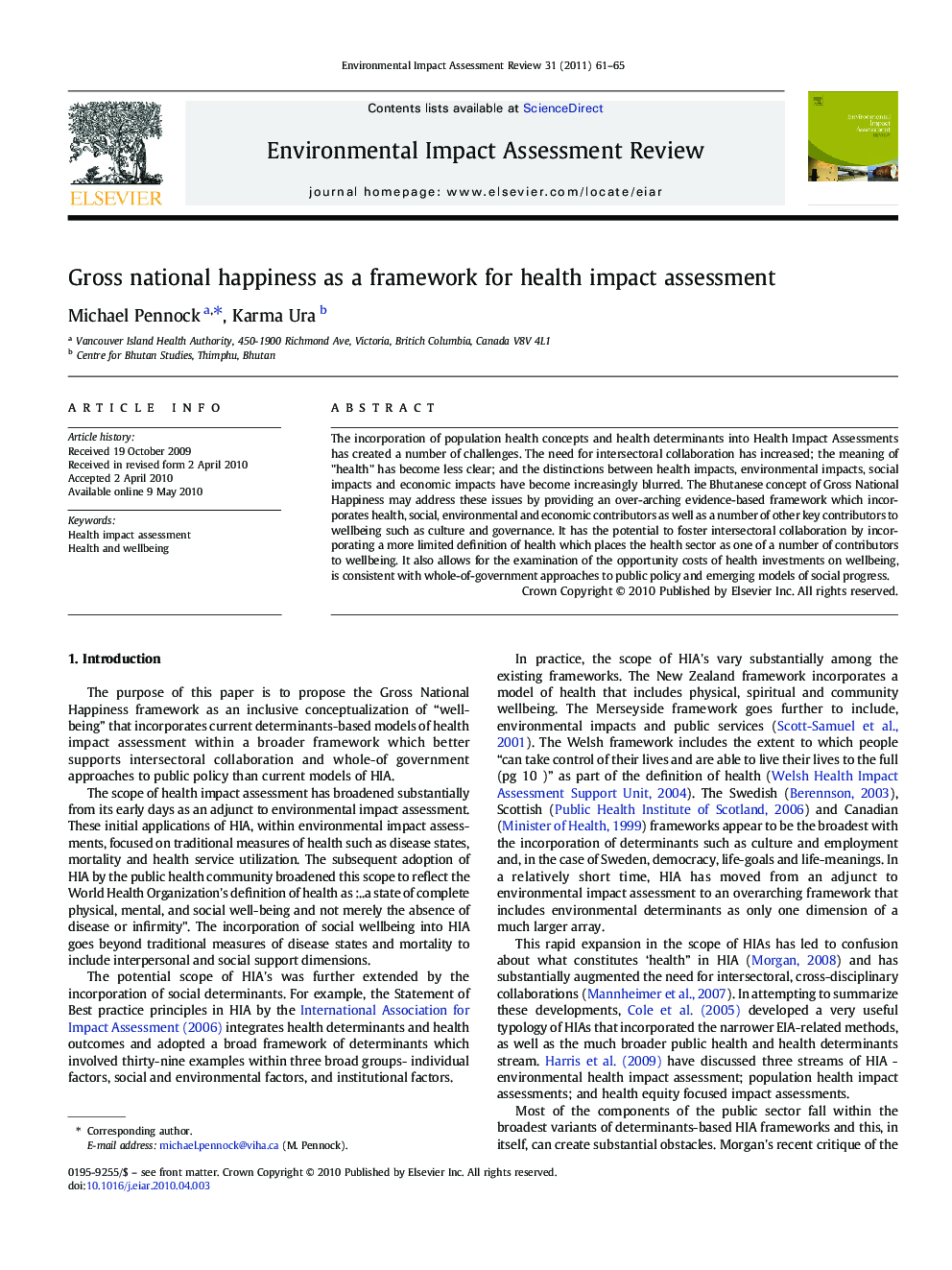| کد مقاله | کد نشریه | سال انتشار | مقاله انگلیسی | نسخه تمام متن |
|---|---|---|---|---|
| 1052982 | 946515 | 2011 | 5 صفحه PDF | دانلود رایگان |

The incorporation of population health concepts and health determinants into Health Impact Assessments has created a number of challenges. The need for intersectoral collaboration has increased; the meaning of "health" has become less clear; and the distinctions between health impacts, environmental impacts, social impacts and economic impacts have become increasingly blurred. The Bhutanese concept of Gross National Happiness may address these issues by providing an over-arching evidence-based framework which incorporates health, social, environmental and economic contributors as well as a number of other key contributors to wellbeing such as culture and governance. It has the potential to foster intersectoral collaboration by incorporating a more limited definition of health which places the health sector as one of a number of contributors to wellbeing. It also allows for the examination of the opportunity costs of health investments on wellbeing, is consistent with whole-of-government approaches to public policy and emerging models of social progress.
Journal: Environmental Impact Assessment Review - Volume 31, Issue 1, January 2011, Pages 61–65